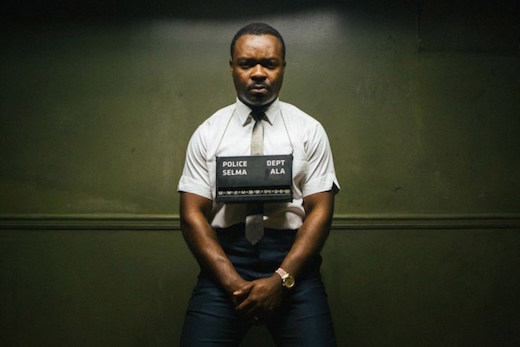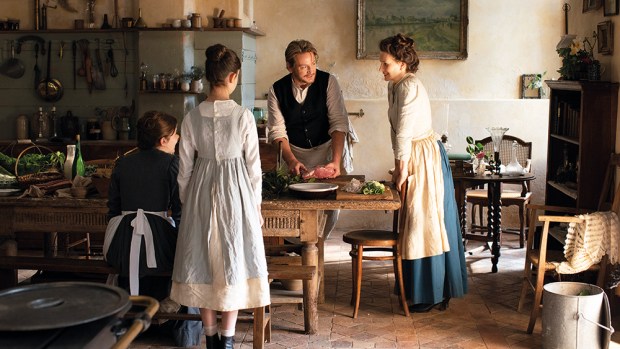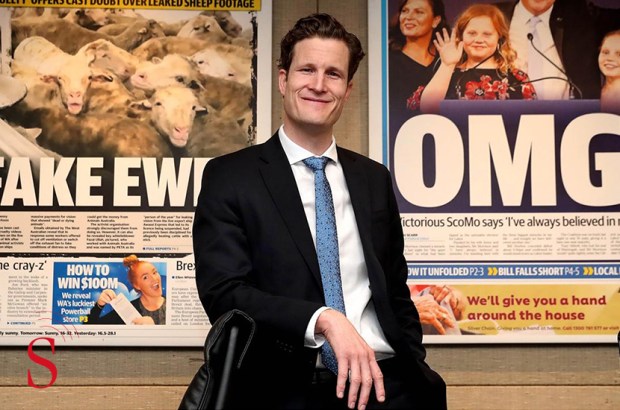Selma, the civil rights film that stars David Oyelowo as Martin Luther King, undoubtedly contains the best and most powerful performance of the year as not nominated for an Oscar. Oyelowo has said this is because Hollywood prefers black actors when they play ‘subservient roles’ and aren’t ‘the centre of their own narrative, driving it forward’, which, alas — and before I could help myself — immediately made me think of Driving Miss Daisy (nine nominations, and winner of Best Picture over Spike Lee’s Do the Right Thing). So, a useful reminder that, in congratulating ourselves on how far we have come, we should not forget how far we still have to travel. (And that is your lesson for this week. Next week, I will think of another lesson to bore you with. If you are reading this on the day of publication …only six sleeps to go!)
The film, as directed by Ava DuVernay, has, at least, been nominated for Best Picture, and tells the story of Dr King’s triumphant crusade to win rights for black voters with the 1965 march from Selma to Montgomery, Alabama. Yes, it is one of those films — a biopic told via a particular, pivotal moment — but it manages to avoid the pitfalls of most. It does not lecture. It does not act as if its source material were The Big Book of Important Bits of History You Should Know About, Dummy. Instead, this is about people, takes its lead from those people, and is full of life; bristles with a passion and energy as it deftly articulates that pivotal moment. This is the film The Butler would have been, if The Butler had been any good.

It opens with Dr King in Oslo, receiving the Nobel Peace Prize, and flirting a little with his wife (Carmen Ejogo) in the hotel room as she adjusts his tie. This is the man in the round, we are being told. A great leader and a great orator — at the podium, he will tell Oslo that the black men and women of America are waging a battle against ‘the starless midnight of racism’ — but a desirable husband, too. British audiences may not be as familiar with King’s cadences and mannerisms as American audiences, so will be hard pressed to judge how well Oyelowo captures the actual man, but in the grand scheme of things, I’m not sure that matters. You just have to believe, and Oyelowo simply makes you believe. It’s not just the force of him. Selma is as intimate as it is epic, and he is just as convincing in the smaller moments. There is one scene, in which he attempts to console a bereaved father, which may well break your heart.
When King returns to America he is determined to secure the voting rights of all African-Americans who are, in fact, legally permitted to vote, but every state makes it almost impossible for them to do so. In Selma, we see an activist (Oprah Winfrey, but quite dignified) attempting to register for her vote. She fills in the form. She takes it to the registrar behind the desk. ‘How many judges in Alabama?’ he asks. ‘Sixty-seven,’ she replies. ‘Name them,’ he says. Her form ends up in the bin. As I’ve said, this isn’t a history lesson, but it doesn’t mean you don’t learn anything. I had no idea the authorities were quite so wilfully obstructive and sly.
King’s fights take him to the Oval Office, where he appeals directly to President Lyndon Johnson (a reliably reliable Tom Wilkinson) and where both try to politically outmanoeuvre each other, and to the streets of Selma, with its brutal police force and brutal sheriff, as whipped up by Alabama’s lizardy governor (Tim Roth). The marchers plan to peacefully walk the 50 miles to Montgomery, the state’s capital, to protest at what they are being denied. The first time they try to do this, they are met with lethal violence, as shown through a mixture of live and archive footage, and CGI. It is hateful to watch, but necessary. The second time, they are joined by people of all colour and religions — yay! a rabbi! — but King turns everyone back rather than risk yet more violence. The third time they make it, and Johnson is forced to concede to their demands (I’m guessing that’s not a spoiler) while you will want to climb on to your cinema seat, and punch the air.
Selma is always involving. Even the political manoeuvrings you don’t quite understand, involving groups like the SNCC and SCLC, are strangely involving, because they are so skilfully threaded into the narrative. If I have any complaints — and I’m squeezing them out here, to be obliging — it may be that King always remains somewhat distant, or I’d have liked someone to pull him up on his profound belief in God (if God’s so great, why is that policeman coming at you with a baton?), plus everything looks too clean and shiny: no poverty, no dirt, no mud, no rain, and all the women give every impression of having just wandered in from the set of Hairspray. But I had to squeeze those out, like I said. Mostly, this film is rich and nuanced and vivid and if you’ve made it all the way down to here, still only six sleeps to go …now minus five minutes!
Got something to add? Join the discussion and comment below.
You might disagree with half of it, but you’ll enjoy reading all of it. Try your first month for free, then just $2 a week for the remainder of your first year.












